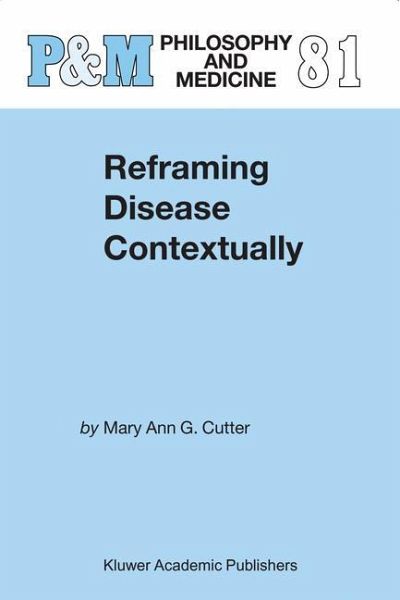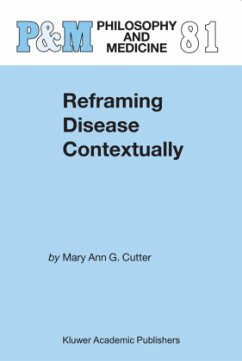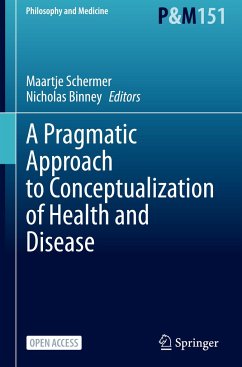
Reframing Disease Contextually
Versandkostenfrei!
Versandfertig in 6-10 Tagen
76,99 €
inkl. MwSt.
Weitere Ausgaben:

PAYBACK Punkte
38 °P sammeln!
Reframing Disease Contextually will be of particular interest to philosophers of medicine, bioethicists, and philosophers. It may also be of value to medical professionals, historians of western medicine, and health policy makers who take interest in the conceptual foundations of medicine.This book: - provides an overview of key debates in the history of modern western medicine on the nature, knowledge, and value of disease; - illustrates how these debates relate; - provides a "contextual" or "localized" way of understanding disease; - includes case studies of e.g. AIDS, genetic disease, and g...
Reframing Disease Contextually will be of particular interest to philosophers of medicine, bioethicists, and philosophers. It may also be of value to medical professionals, historians of western medicine, and health policy makers who take interest in the conceptual foundations of medicine.
This book:
- provides an overview of key debates in the history of modern western medicine on the nature, knowledge, and value of disease;
- illustrates how these debates relate;
- provides a "contextual" or "localized" way of understanding disease;
- includes case studies of e.g. AIDS, genetic disease, and gendered disease;
- conveys the importance of the intersection and interrelation between and among factors that make up disease;
- illustrates how bioethical discussions about disease naming, classification, diagnosis, prognosis, and treatment are part of a much greater discussion in philosophy of medicine.
This book:
- provides an overview of key debates in the history of modern western medicine on the nature, knowledge, and value of disease;
- illustrates how these debates relate;
- provides a "contextual" or "localized" way of understanding disease;
- includes case studies of e.g. AIDS, genetic disease, and gendered disease;
- conveys the importance of the intersection and interrelation between and among factors that make up disease;
- illustrates how bioethical discussions about disease naming, classification, diagnosis, prognosis, and treatment are part of a much greater discussion in philosophy of medicine.














